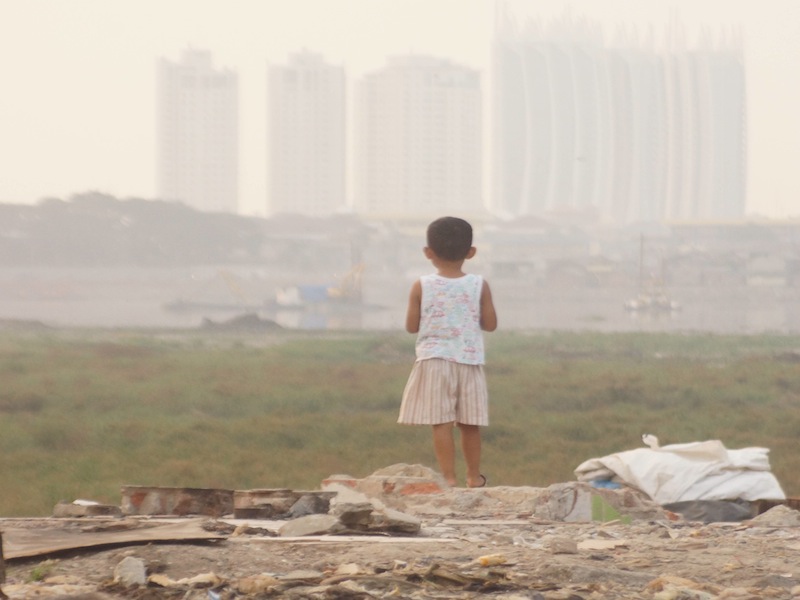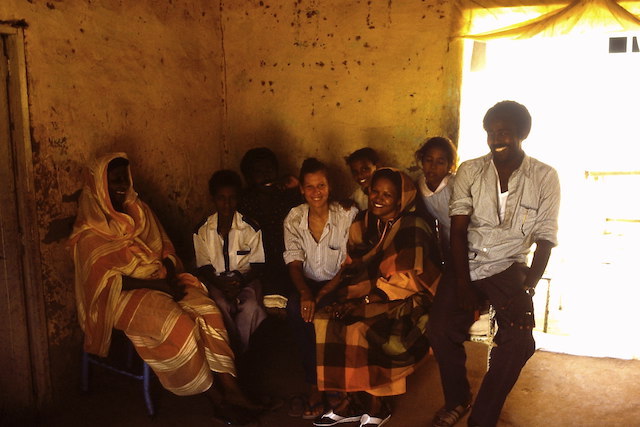
Claudiaexpat considers her 30 years of life abroad with the Red Cross Movement, and reflects on the quality of cross-cultural contact in the countries where we end up during our international lives.
I remember when my husband and I gave our farewell party in Tegucigalpa, Honduras. We had spent four wonderful years there, and met a lot of people. A Spanish friend, who used to work for a prestigious branch of the United Nations, approached me. She wanted to tell me how impressed she was with the quality of cross-cultural contact we had managed to develop:
“I have the feeling that despite having lived here longer than you have, my contacts with local people are limited to office colleagues and school parents. You have gone much deeper into society”.
Her remark filled me with pride. As I have recounted here, working with the Red Cross means connecting with the most vulnerable and needy sectors of society.
I have always maintained that cultural differences between the wealthiest and the poorest strata of societies can be more striking that those that separate one culture from another. I am still convinced of that, and this brings me to reflect on how the quality of cross-cultural contacts you have throughout your assignment is influenced by the range of local people you manage to connect with.
There are definitely ways into local cultures for short-term expats, the main one being, in my experience, schools and workplaces. As privileged expats (the group I represent), the schools we send our children to are usually the most exclusive and expensive ones. Local students in these schools are those whose families can afford to pay very high fees.
I feel frustrated whenever I hear people talking generally about “expats”, referring to a group of wealthy people
I was struck by what Marco, a young TCK brought up in several countries, said when Expatclic interviewed him:
“I went to the most expensive school in the country, and I was surrounded by sons and daughters of millionaires and billionaires, and all the rest. And just outside you had kids, my age and younger, on the streets, begging.”
Marco is lucky in that his parents, whom I know personally, have built a life full of diversity. His mother is an artist, his father used to work for an institute devoted to feeding the world, and they have certainly managed to offer Marco and his brother and sister the chance to enhance their view of reality.
This is not the case for everyone, though. I have seen expat families raising their children abroad between expensive schools, exclusive sports and high-class friendships. In most cases these parents moved within a very limited circle in their host country.
What can make the difference in getting in touch with a wide range of social classes and human situations in your host country, is, in my experience, the kind of work you do.
As privileged expats, it is certainly easier to access the wealthiest strata of societies. For those who work for big international companies this is the natural ambiance.
What I loved in being an expat for more than thirty years within the Red Cross movement was that I was able to move from ambassadors and government representatives to the poorest of the poor. Thanks to my husband’s role (and my role, too, during those two wonderful years when I was also employed by the Red Cross in Sudan and Angola), the approach to people who had lost houses, had nothing to eat, or were subject of the worst type of discrimination, was smooth and free. We were all part of the same, big movement, which shared the same values and was working towards the same aim.
I feel frustrated whenever I hear people talking generally about “expats”, referring to a group of wealthy people who by chance work abroad with luxurious contracts and whose experience, is limited to houses with swimming-pools, servants, drivers and bodyguards.
There is a whole range of expats who go abroad on different missions and with different scopes. I have met hundreds of people who thanks to the nature of their work were able to develop a high quality of cross-cultural contact in their host country.
Sure, what you do in your new culture is not the exclusive factor that determines how local people will see you and the depth of intercultural relationship you’ll be able to establish. But ways in to your host country’s culture are crucial to make the process a successful one.
I have lived in 10 countries in 5 continents and I know for sure that no intercultural experience can be called complete when you are only exposed to a part of the population. I believe that part of our mission as expats is to do all we can – and use our creativity, sense of initiative and empathy – to try and have at least a modicum of contact with situations our role in the host country does not naturally put us face to face with. Only then shall we leave with the feeling that the human and cultural capital we accumulate while living in contact with different cultures has grown with the new experience.







